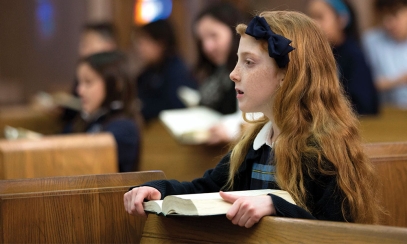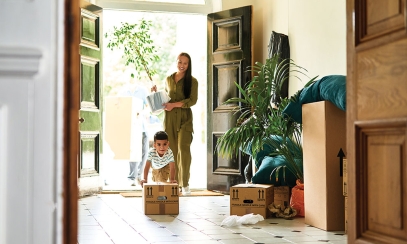
Over-protecting or keeping kids safe?
Part 2
Part 2
Raising holy, healthy, safe kids is the goal of all parents. This month we will take a deeper look at the ways we can do this in today’s culture – ways that allow us to do what’s best for our kids without hovering or micromanaging.
Raising holy, healthy, safe kids is the goal of all parents. This month we will take a deeper look at the ways we can do this in today’s culture – ways that allow us to do what’s best for our kids without hovering or micromanaging.
Rooted in faith
If all of our expectations and rules are rooted in faith and geared toward helping our kids become saints, it becomes simple to explain why they are there. If a behavior, social situation or relationship is going to draw our kids away from Jesus, that’s a pretty strong reason to avoid or change it.
Social situations
You have to know your children’s “people.” Volunteering at church and school provides a window to the kids your children spend their days with. Learn names so when your child comes home and talks about so and so, you can make a connection.
Know the place
When kids are young, if your child gets an invitation and you don’t know the family, either get to know them, invite the child to your home instead, or say no. When they’re teens, the same rule applies but also extends to public places. Talk about places, plans and the people who will be there, and ask questions. Rely on conversation rather than the tracker on their cell phone … meaningful conversation about your expectations and concerns is always better than relying on technology.
Choices and consequences
Every choice, good or bad, has a consequence and that lesson is invaluable. If we love our kids enough to establish rules and expectations, we have to be willing to let our kids make choices, but also to let them live with the consequences. If they choose to watch Netflix instead of studying for their exams, they have to live with the consequence of a poor test score without having us ask the teacher for a re-take or allowing them to blame the bad grade on something other than their choice. With younger kids, the same is true. Facing a toy room without their favorite thing because they chose not to put it away when asked might be hard in the moment, but this lesson is invaluable so it’s worth the pain of watching them live out the consequences of their choices.
Boundaries
Whether it’s screen time or social interaction, kids must be aware of the boundaries. They need to be clear, consistent and enforced. If each boundary you establish has its roots in faith and kids know the consequences for going outside those boundaries, you can remove drama and personality from the issues. If your follow-through is consistent, it all becomes straightforward. It’s also good to remember that kids will test the boundaries … that’s what kids do and, in most cases, those setbacks are really what help kids learn and move forward. Consistent, loving boundaries and consequences allow kids to mess up, learn and make better choices.
Dependent independence
Our culture cherishes independence, and helping our kids become responsible helps build independence. But don’t forget to teach children that even the most independent person in the world is still completely dependent on God.
Sheri Wohlfert is a Catholic wife, mom, grandma, speaker and writer. Catch her blog at www.joyfulwords.org.



